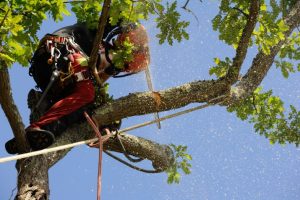
Pruning vs. Tree pruning: All the differences
Taking care of the trees on your property is one of your responsibilities as a homeowner or commercial building owner. When a tree is threatening
Compare 3 free quotes for tree cutting, trimming or maintenance. Free service.
Ask for them now!
 By clicking on the button, I accept the Terms and Conditions.
By clicking on the button, I accept the Terms and Conditions.

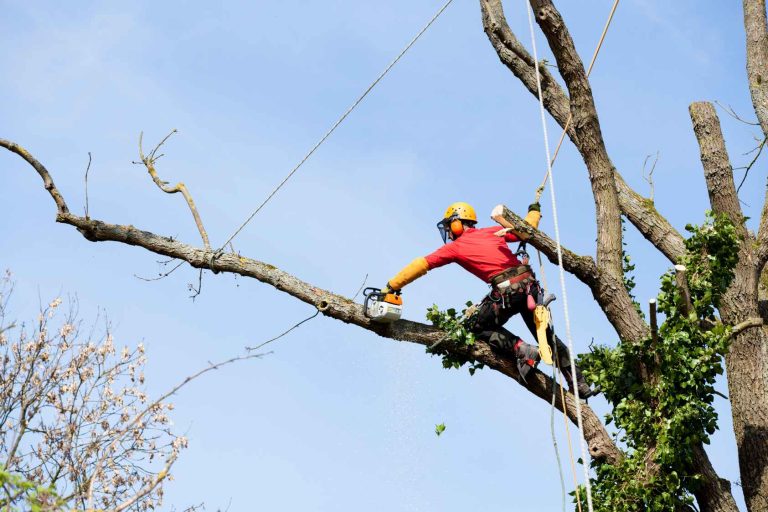
Pruning
is the most commonmost common tree care procedure. This involves removing small, low branches, woody twigs and undesirable young shoots. In some cases, branches can also be shortened.
Pruning is a slightly more complex operationThis involves removing dead, diseased, misplaced, harmful or poorly attached branches from a tree. He aims to keep the tree in good health and encourages its development. Find out more about
pruning and rates
.
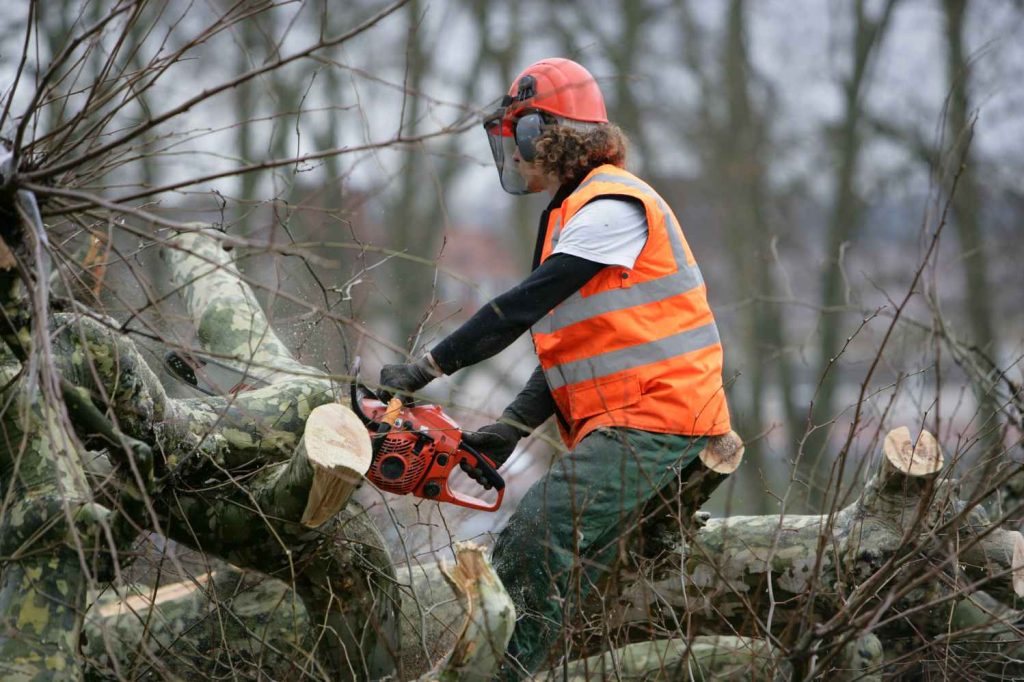
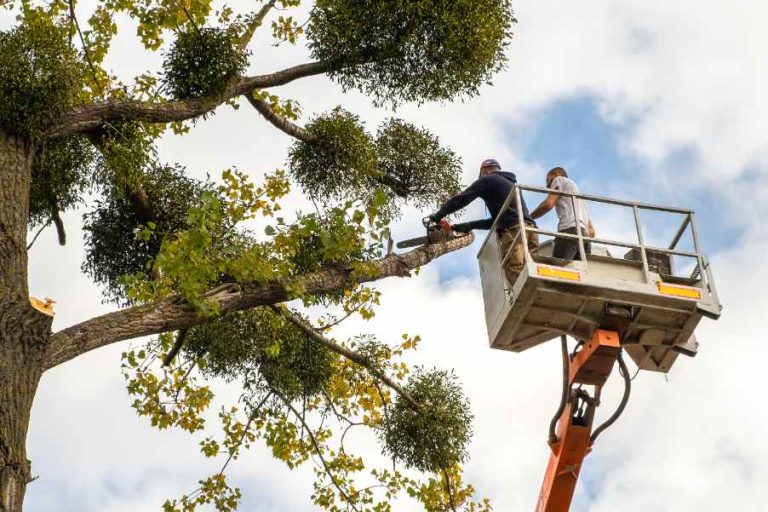
Topping is a practice that aims to to reduce the height of a tree by cutting off its crown.
Felling
involves safely removing an entire tree. This is an irreversible stage, which can be followed by grubbing (action of removing a stump).
When the tree is dead, diseased, causing damage or becoming dangerous, felling should be considered.
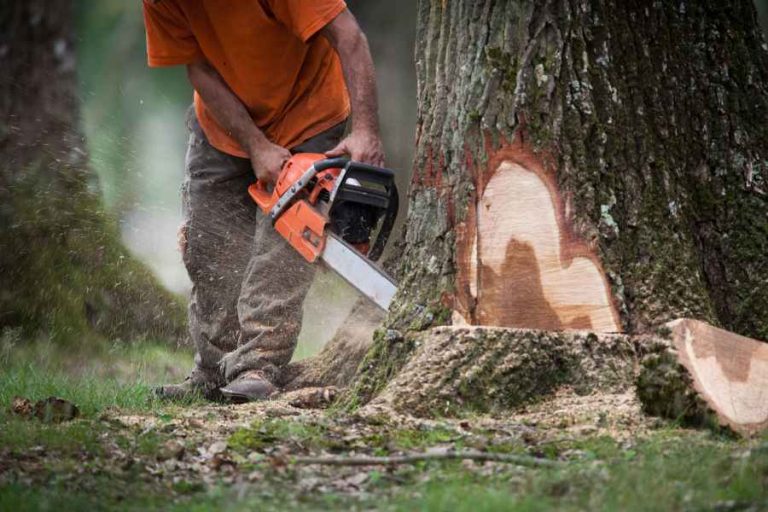
Felling a tree has major consequences for the environment. It acts as a “natural purification plant”, filtering rainwater.
It is also an incredible producer of oxygen, helping to ensure our survival.
These are the reasons why
tree-cutting is increasingly regulated
by municipalities – especially on private land. These restrictive regulations, and the resulting fines for non-compliance, make it possible to limit abusive felling.

There are many reasons why a homeowner might want to cut down a tree. While some of these are more of a whim, others will be given special attention by the municipal services.
The issuance of a felling permit
is therefore subject to one of the following conditions:
If the tree has dried out or rotted, its hardened and more fragile branches may fall, causing major damage (human and material). In fact, it seems unavoidable to shoot it to avert any danger. If in doubt, seek the expertise of an arborist or urban forestry consultant. The latter is generally equipped with highly advanced diagnostic and investigative tools.
When a tree is diseased, infested by parasites or fungi, and no treatment or pruning is possible, it's important to take action to prevent the disease spreading to nearby healthy trees.
In some cases, the tree can be a nuisance to the growth of surrounding trees. The owner will then have to cut down his tree.
When a tree is perceived as a real obstacle to the realization of a development, construction or work for which a permit has been issued, and if there are no other solutions, authorization to fell it may be given.
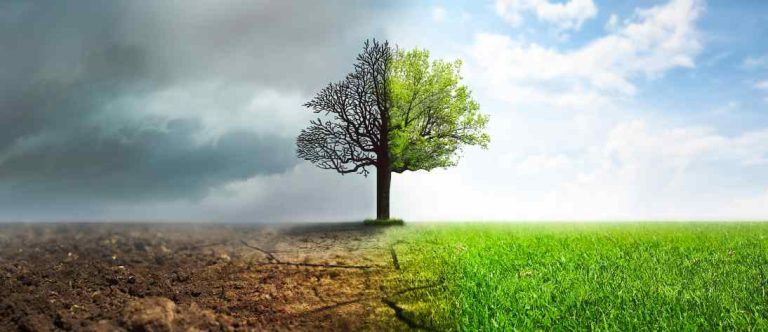
Once you’ve obtained the certificate of authorization, you can carry out the operation yourself. But be careful, you’ll need to comply with the urban planning harmonization by-law. The latter lays down very precise rules concerning the siting of trees on your land or their felling.
In Quebec, there are many companies specializing in arboricultural work.
These professionals have received
training
quality training
both in terms of felling techniques
and safety rules.
Many factors influence tree-felling operations: the type of wood and its condition, the inclination of the tree, its dimensions, the environment…
In an urban environment, cutting down trees is dangerous and must be done by dismantling them section by section. Cranes and aerial platforms are generally used, and dexterously handled to avoid electrical wires in particular.
Furthermore, safety is of paramount importance in this field. Arboriculturists are well aware of this, so they use protective equipment, safe, high-performance tools, and adopt appropriate behavior.
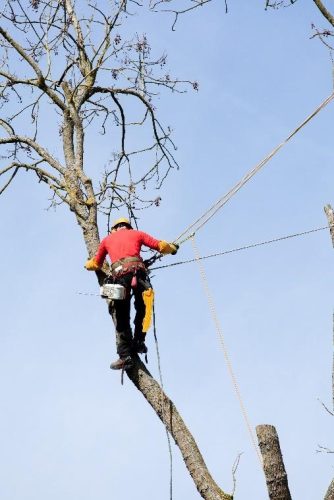
There is no professional order for arborists. However, you can be sure that
the chosen worker is competent if he or she meets one or more of the following criteria:
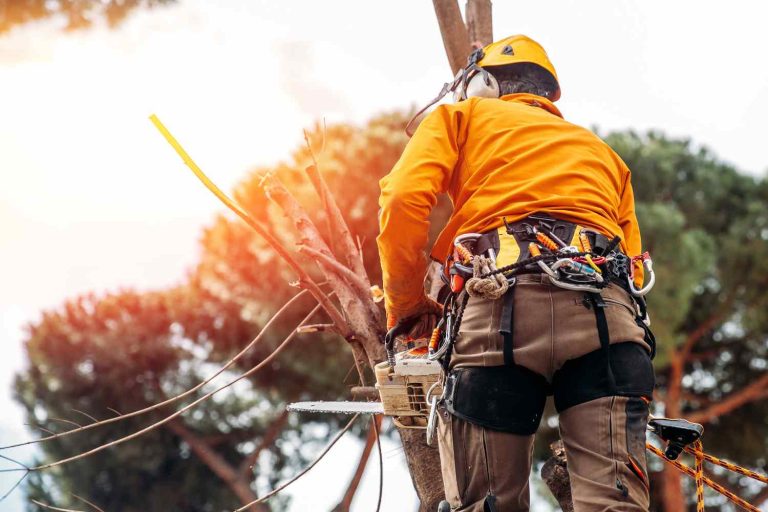
First of all, start by
request a quotation
to an arboricultural contractor. This first step is usually free of charge. Don’t hesitate to request several quotes to compare prices and services.
The price of felling a tree depends on five major factors
such as :
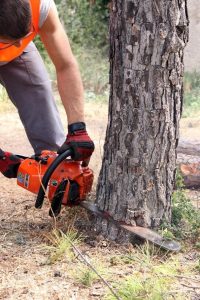
Without stump removal, it costs an average of $100 to $500 to have an unobstructed tree cut.
The price of stump removal
If you have to remove the entire stump, you’ll have to double the tree-felling estimate. Consider an additional $150 to $1,000, depending on the complexity of the task.
The average cost of felling a tree can rise very quickly (to around $1,400) when it is close to electrical infrastructure (poles, power lines, etc.).
Felling a tree on hilly or sloping ground can cost up to $1700, while the same tree on flat, smooth ground will cost you around $700.
Once you’ve felled your tree, there’s one last step to take: managing all the cut wood (and its residues)! Here are the
different options offered by contractors:
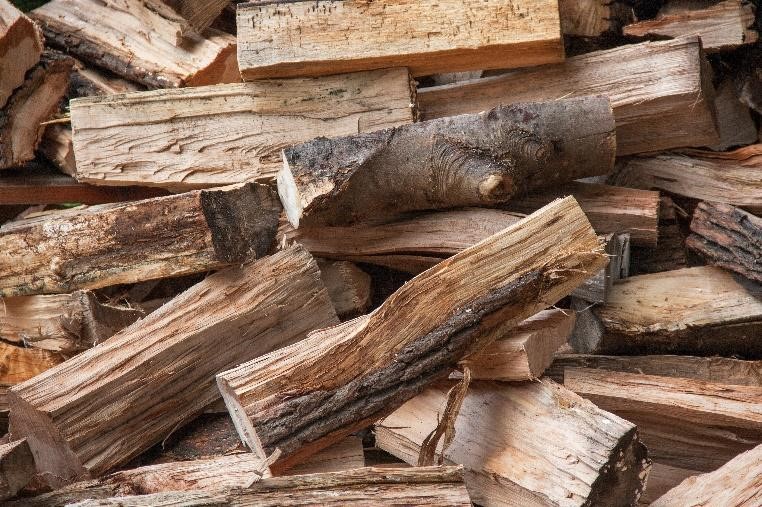
The cost of a felling permit varies from municipality to municipality. Some don't charge for it, but you'll usually have to pay between $50 and $100.
If you decide to cut down a tree without authorization, it could cost you dearly. Fines range from $500 to $5,000 (for repeat offences) for each tree felled without a permit!

Taking care of the trees on your property is one of your responsibilities as a homeowner or commercial building owner. When a tree is threatening
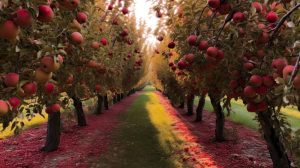
Fruit trees – Best species and prices There are many advantages to having a fruit tree in your own backyard. Growing your own fruit is

The cedar hedge is a particularly popular landscape design with Quebecers. In addition to its aesthetic appeal, it creates a certain privacy within a property.
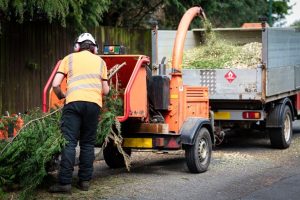
The latest storms to hit Quebec this winter caused a lot of damage and havoc. Several trees fell and branches were torn off. Now that

A tree house is the perfect way to enjoy a unique experience high up in the mountains! Having a tree house is a unique experience.
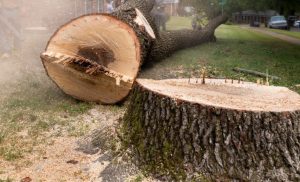
If you’ve recently had a tree felled and intend to use the plot of land it once occupied to build a garden shed or swimming
 By clicking on the button, I accept the Terms and Conditions.
By clicking on the button, I accept the Terms and Conditions.

Ask for them at
now!
